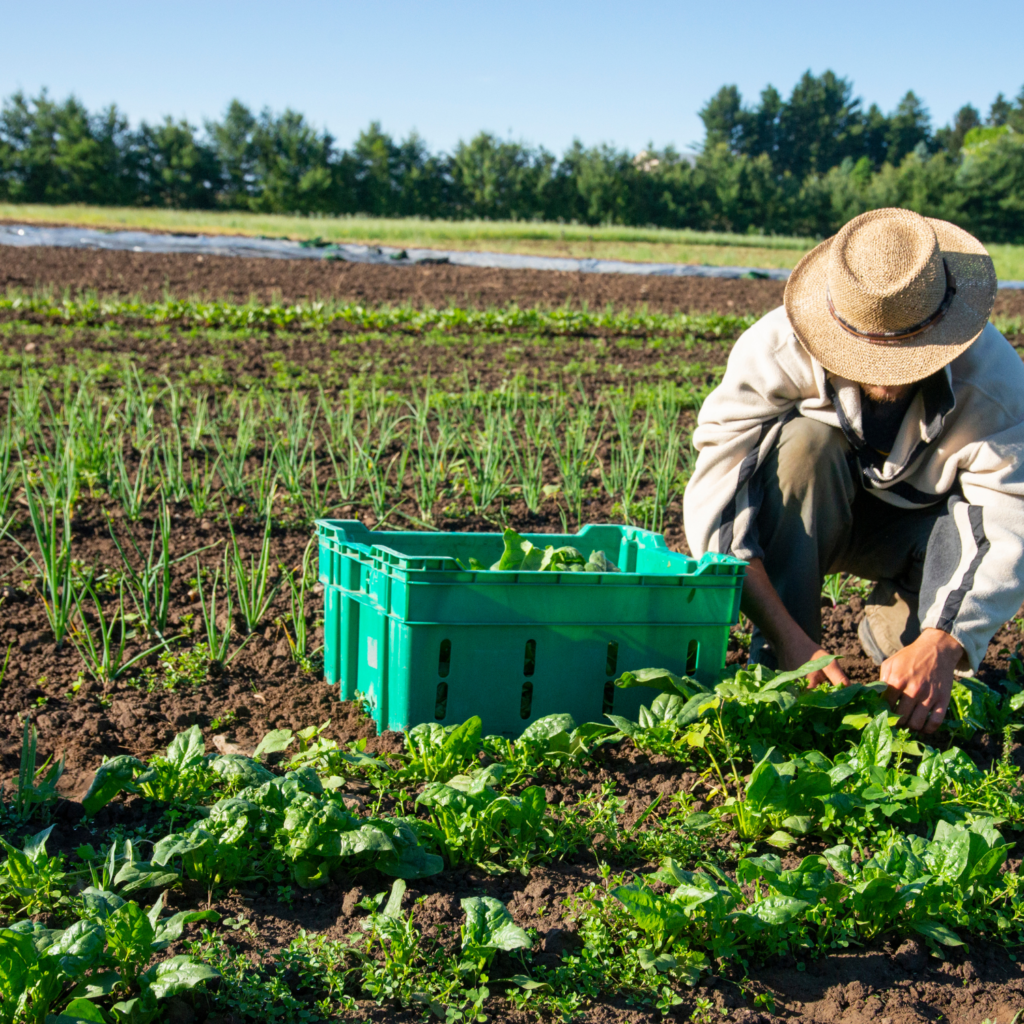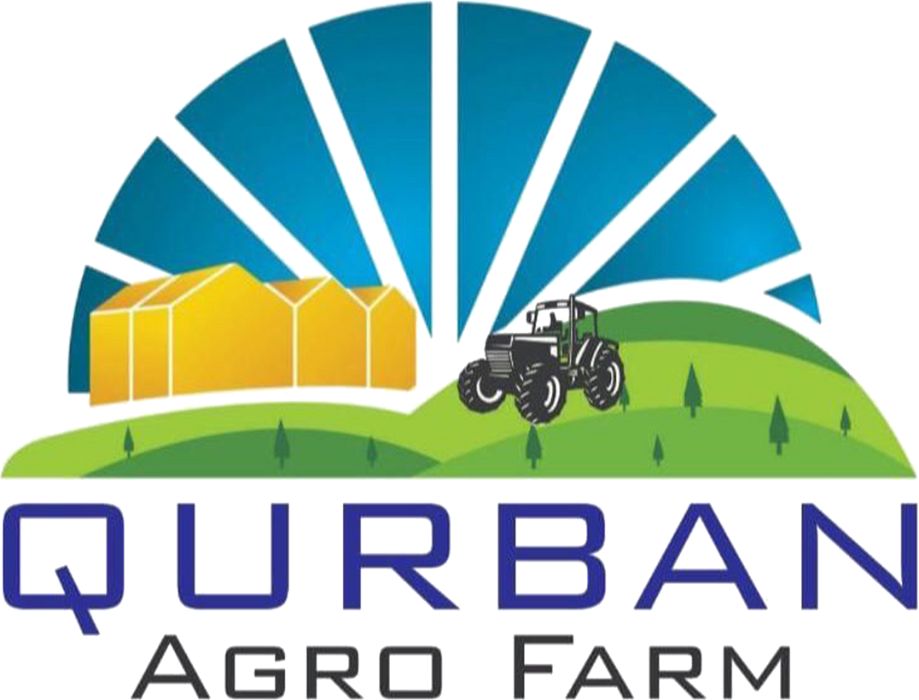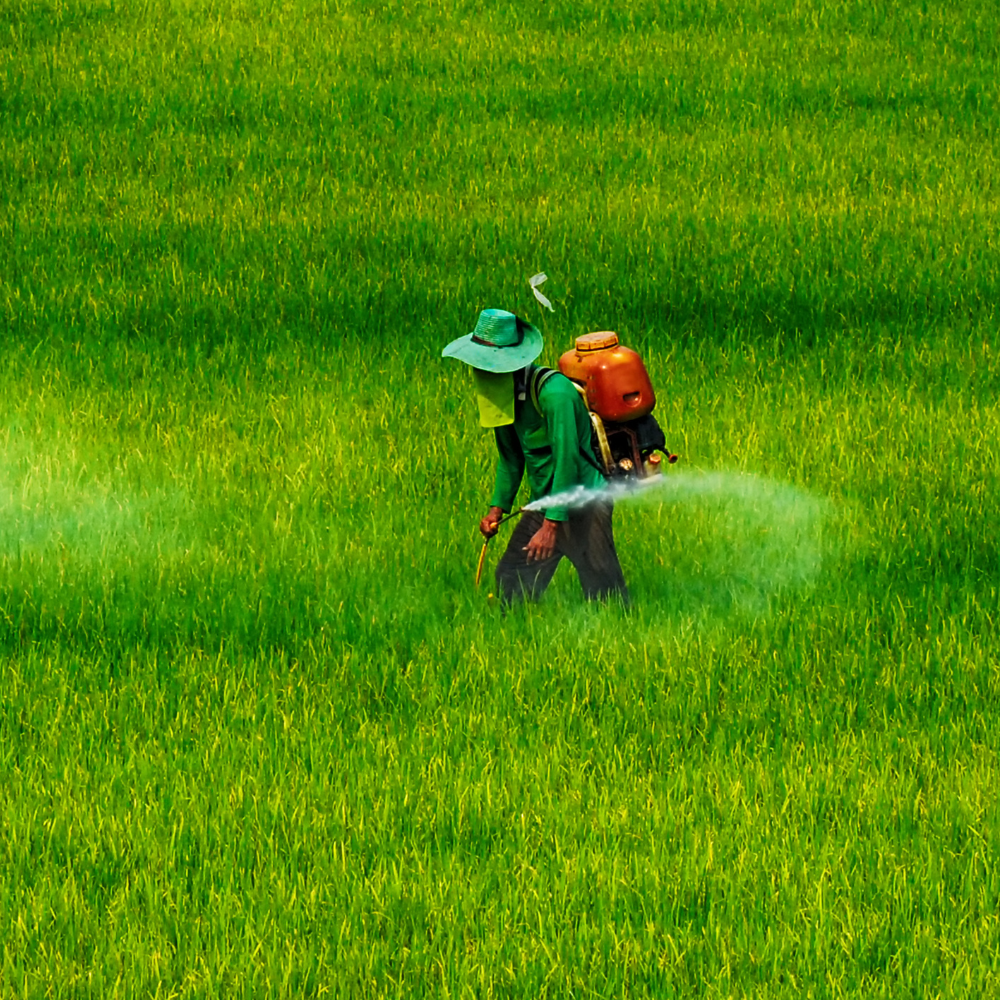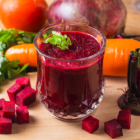Agriculture in Pakistan has been the backbone of the economy since its inception in 1947. The earliest exports were comprised of Agricultural goods. Agriculture has always been a crucial sector in Pakistan’s economy, providing employment to a large portion of the population and contributing significantly to the country’s GDP. With a diverse climate and fertile land, Pakistan has the potential to become a major player in the global agricultural market. However, despite its immense potential, the sector faces numerous challenges that hinder its growth and development.
Pakistan is primarily an agrarian economy, with agriculture employing around 40% of the workforce and contributing 24% to the country’s GDP. This makes agriculture in Pakistan an important The sector also plays a crucial role in ensuring food security for the nation. The country’s diverse climate and fertile land make it suitable for cultivating various crops, ranging from wheat and rice to fruits and vegetables.
Agriculture is considered the backbone of Pakistan’s economy because it is the largest sector in terms of employment, GDP contribution, and food security. The country’s economy heavily depends on agricultural activities, making it a crucial driver of economic growth and stability.
The Importance of Agriculture in Pakistan:
Agriculture plays a pivotal role in Pakistan’s economy:
Contribution to GDP
Agriculture contributes around 19-20% of Pakistan’s Gross Domestic Product (GDP). It supports major industries like textiles, food processing, and dairy, which rely on agricultural raw materials. Cotton, for instance, is the foundation of Pakistan’s textile industry, the largest export sector.
Employment and Livelihood
Over 38% of Pakistan’s labor force is engaged in agriculture, directly or indirectly. Millions of rural households depend on farming, livestock, and related activities for their income. The sector also creates indirect employment in areas like transportation, storage, and agricultural machinery.
Food Security and Self-Sufficiency
Agriculture ensures food availability for Pakistan’s growing population by producing staple crops like wheat, rice, maize, and sugarcane. It reduces reliance on food imports, helping maintain economic stability and preventing food crises.
Export Earnings
Agricultural exports, including rice, fruits, vegetables, and livestock products, generate significant foreign exchange. Pakistan is among the top rice-exporting countries, with Basmati rice being a major contributor to export earnings.
Rural Development and Poverty Reduction
Since a large portion of Pakistan’s population resides in rural areas, agricultural growth directly improves rural livelihoods. Government policies supporting small farmers, irrigation systems, and modern farming techniques contribute to poverty reduction and economic upliftment.

What is the importance of agriculture in Pakistan?
Agriculture is the backbone of Pakistan’s economy. It contributes about 19% to the national GDP and employs around 42% of the labor force. Most of the rural population depends on agriculture for their livelihood. It is not just a source of food but also supplies raw materials to various industries, including textiles, which is Pakistan’s largest export sector.
Main Crops Grown in Pakistan
Agriculture in Pakistan is diverse, with several key crops grown throughout the year:
- Wheat – Wheat is the staple food of Pakistan. It is the most important crop and is grown in the winter season, known as the Rabi season.
- Rice – Rice is a major export crop, especially the Basmati variety, which is known for its aroma and quality. It is grown in the summer season, known as the Kharif season.
- Cotton – Another vital crop for Pakistan’s textile industry, cotton is also a Kharif crop.
- Sugarcane – This crop is used to produce sugar and various other products. It is grown throughout the year but primarily harvested in winter.
- Fruits and Vegetables – Pakistan grows various organic, healthy, and tasty fruits such as mangoes, oranges, apples, and bananas. Vegetables like Garlic, NARC G1 Garlic, potatoes, tomatoes, and onions are also widely cultivated.
Farming Practices by the Farmers of Pakistan- A Glimpse Into Agriculture in Pakistan!
Farming in Pakistan ranges from traditional methods to modern techniques. Here’s a look at the common practices:
- Irrigation
- Crop Rotation
- Use of Fertilizers and Pesticides
- Mechanization
Future Prospects of Agriculture in Pakistan
The future of agriculture in Pakistan looks bright, especially with the use of modern techniques. Using technology like GPS, drones, and satellites can help farmers manage their crops better and use resources more efficiently.
Growing new types of crops that produce more and resist diseases can also boost farm productivity. Using modern machines like tractors and harvesters can make farming easier and less labor-intensive.
Moreover, sustainable farming practices are important for the long-term health of agriculture. Organic farming can reduce the need for chemical fertilizers and pesticides, leading to healthier food and a cleaner environment.
Methods like crop rotation and less plowing can improve soil health and conserve water. Efficient water management techniques, such as drip irrigation and collecting rainwater, can help address water shortages.
Government support is crucial for the future of farming. Providing financial help and incentives for modern equipment and sustainable methods can encourage farmers to adopt new practices. Investing in agricultural research can lead to innovations that increase crop yields and resilience. Making sure farmers have access to loans can help them invest in the tools and resources they need.
Effective disaster management can protect crops and livestock from natural disasters. Sustainable land management practices, like planting trees and shrubs, can prevent soil erosion and maintain land productivity.
Diversifying agriculture can reduce risks and improve food security. Encouraging farmers to grow a variety of crops and promoting livestock and fish farming can provide additional sources of income.
This is not all, establishing strong market connections and cooperatives can help farmers get better prices for their products. Similarly, promoting export opportunities for high-value crops can increase foreign earnings and improve the trade balance
Problems of agriculture in Pakistan
Pakistan’s agriculture sector faces numerous challenges, including water scarcity, outdated farming techniques, lack of technological innovation, and inadequate infrastructure.
Water scarcity is a significant issue, with almost 90% of the country’s water resources used for agriculture. Climate change has further exacerbated this problem, leading to unpredictable weather patterns and droughts in some regions.
Another challenge facing Agriculture in Pakistan is the reliance on outdated farming techniques. Many farmers still use traditional methods of farming, resulting in low crop yields and inefficiency. Lack of access to modern agricultural machinery and technology further hinders productivity and makes farming a labor-intensive process.
Furthermore, inadequate infrastructure, such as lack of storage facilities and poor transportation networks, leads to post-harvest losses and decreases the overall efficiency of the agricultural supply chain. The absence of proper market linkages also prevents farmers from getting fair prices for their produce, further exacerbating poverty and food insecurity in rural areas.
To address these challenges and unlock the full potential of Pakistan’s agriculture sector, the government and other stakeholders need to invest in modernizing farming techniques, improving access to technology and machinery, and developing sustainable water management practices. Furthermore, building better infrastructure, such as storage facilities and transportation networks, will help reduce post-harvest losses and improve market access for farmers.
Despite the challenges it faces, Pakistan’s agriculture sector has the potential to drive economic growth and alleviate poverty in the country. By addressing the underlying issues and empowering farmers with the necessary resources and support, Pakistan can transform its agriculture sector into a thriving industry that contributes significantly to the nation’s economy.
Final Thoughts
Agriculture in Pakistan is undeniably the backbone of Pakistan’s economy, playing a crucial role in providing employment, ensuring food security, and contributing significantly to the GDP. Despite its immense potential, the sector faces numerous challenges, including water scarcity, outdated farming techniques, and inadequate infrastructure.
Addressing these issues requires a concerted effort from the government and other stakeholders to invest in modernizing farming practices, improving access to technology, and developing sustainable water management strategies.
With the adoption of modern agricultural techniques such as precision farming and mechanization, Pakistan can significantly boost crop yields and efficiency.
Sustainable practices, including organic farming and efficient water management, are vital for the long-term health of the sector. Government support in the form of financial incentives, research investments, and better infrastructure is essential to empower farmers and enhance productivity.
The future of agriculture in Pakistan is promising. By diversifying crops, promoting livestock and fish farming, and strengthening market connections, the country can reduce risks, improve food security, and increase farmers’ income. Export opportunities for high-value crops can further boost the economy.
Ultimately, by addressing current challenges and leveraging its potential, Pakistan can transform its agricultural sector into a thriving industry that drives economic growth, alleviates poverty, and ensures a stable and prosperous future for the nation.
Frequently Asked Questions:
What is the main agriculture in Pakistan?
The most significant crops are wheat, sugarcane, cotton, and rice, which collectively contribute to over 75% of the total crop value. Wheat is the largest food crop in Pakistan.
What is the rank of Pakistan in agriculture?
As of the latest available data, Pakistan ranks among the top agricultural producers in several categories. It is one of the world’s largest producers of crops such as wheat, rice, sugarcane, cotton, and fruits like mangoes and oranges. Specifically, Pakistan is:
- The 8th largest producer of wheat.
- The 4th largest producer of cotton.
- The 5th largest producer of sugarcane.
- Among the top 10 producers of rice.
- The 4th largest producer of mangoes.
These rankings can vary based on the source and the year of the data, but Pakistan consistently ranks high in these categories globally.
How much of Pakistan’s GDP is in agriculture?
Agriculture accounts for approximately 18-20% of Pakistan’s Gross Domestic Product (GDP). This sector is a significant part of the economy, employing around 42% of the country’s labor force and playing a vital role in food security, export earnings, and overall economic stability.
Which industry is the backbone of Pakistan?
Agriculture is often considered the backbone of Pakistan’s economy. It not only contributes significantly to the GDP but also employs a large portion of the population, supports related industries, and is crucial for food security and export earnings. Additionally, the textile industry, which relies heavily on agricultural outputs like cotton, is also a vital sector, making agriculture integral to Pakistan’s economic structure.
Which city is famous for agriculture in Pakistan?
Faisalabad is renowned for its agricultural significance in Pakistan. Often referred to as the “Manchester of Pakistan,” Faisalabad is a major agricultural and industrial hub. The region around Faisalabad is known for its fertile land, extensive canal irrigation system, and production of crops like wheat, sugarcane, and cotton. The city’s strong agricultural base also supports its prominent textile industry, making it a key city for Pakistan’s economy.




